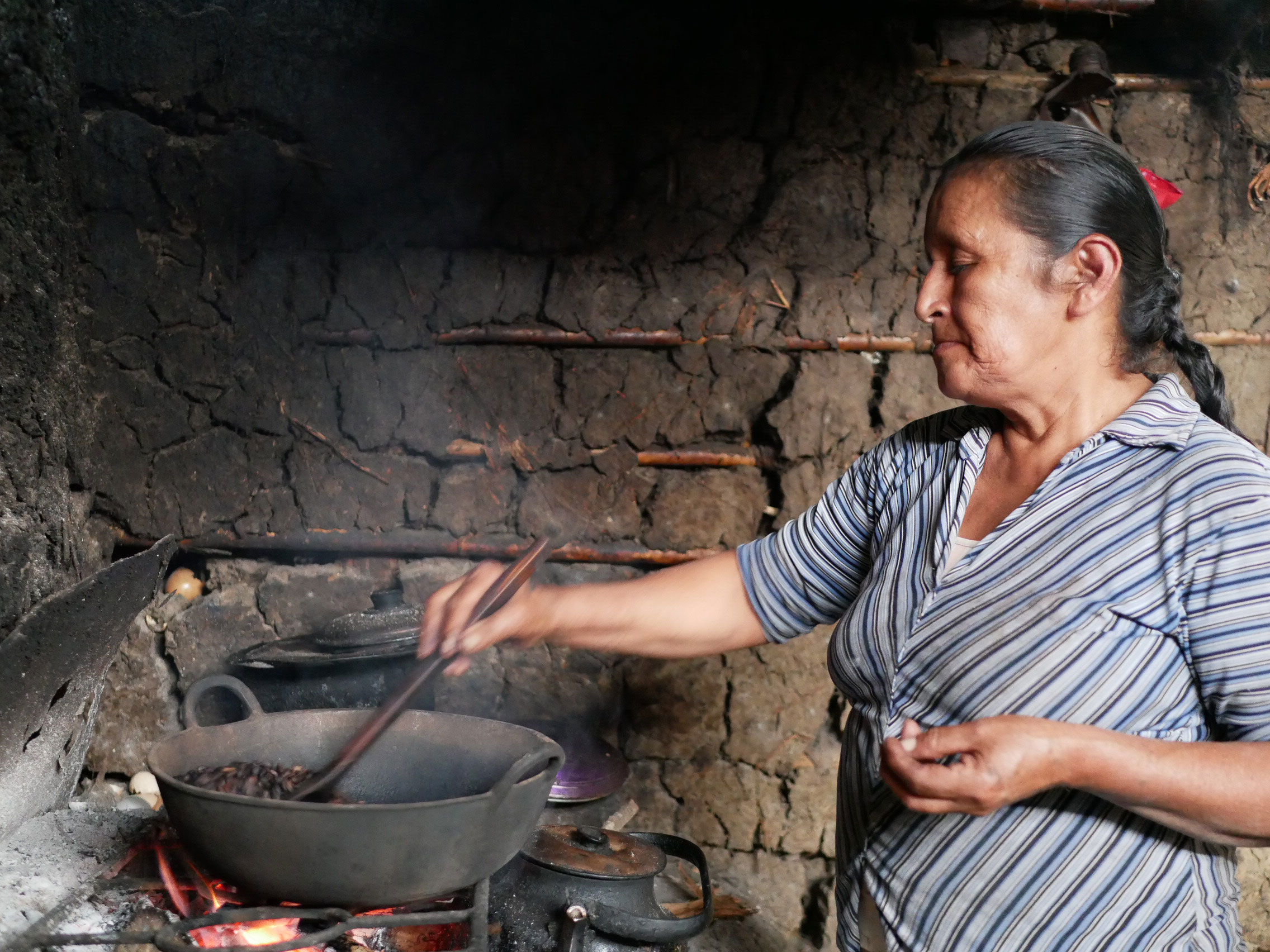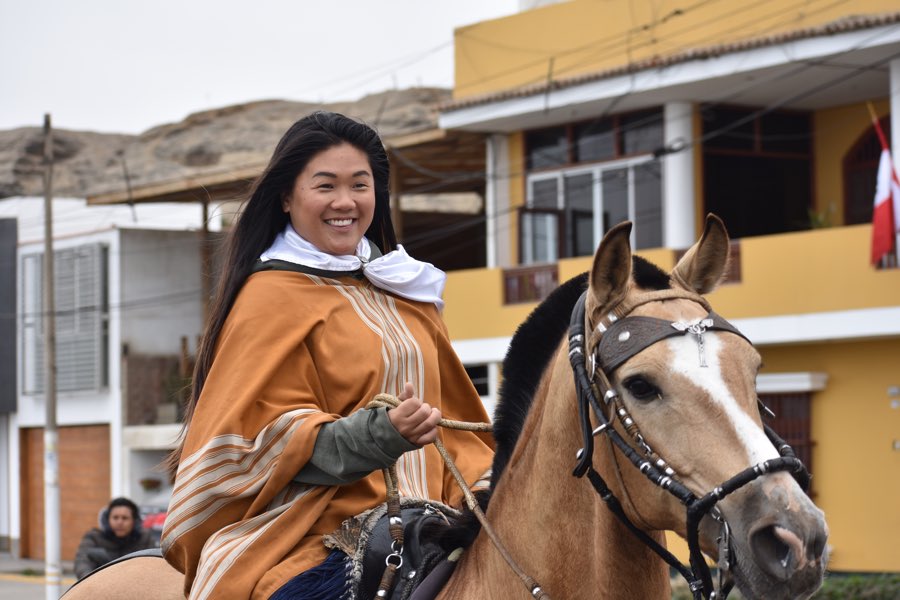Today we all look for meaning in our lives, but not only in our daily life or at work. Also during our holidays or maybe even MAINLY during our holidays! A responsible trip could perfectly suit your needs.
But this arises the following question: How to find the right places? There, where we are sure we can make a difference, we can interact with the local population and tourism revenues will be used in a useful way.
Today we present 7 locations, all different, but managed by local communities or rural entrepreneurs. Of course we know all these places personally and we can assure you that you will find generous and passionate people there.
Responsible Trip to Tingana Ecotourism Nature Reserve, Moyobamba
Tingana is about a 2 hour-drive from Moyobamba. One hour by car and then another hour by boat, because the Tingana Ecotourism Reserve is in the middle of the virgin forest, on the Avisado River. It is a wetland of aguajales renacales water with an immense variety of fauna and flora.
The reserve is managed by seven families that preserve this incredible ecosystem and develop ecotourism that will promote the conservation as well as the active participation of the local community.
Today you can visit Tingana during a day or even stay at night in rustic cabins. The families take care all year long of the accessibility of the fluvial ways, the census of fauna and flora, but also the protection of the territory vis-à-vis the hunters and farmers who try to nibble the reserve on the sides, which constitutes a real threat.
More information in our detailed article on a responsible trip to Tingana or directly on the Tingana website (in Spanish).
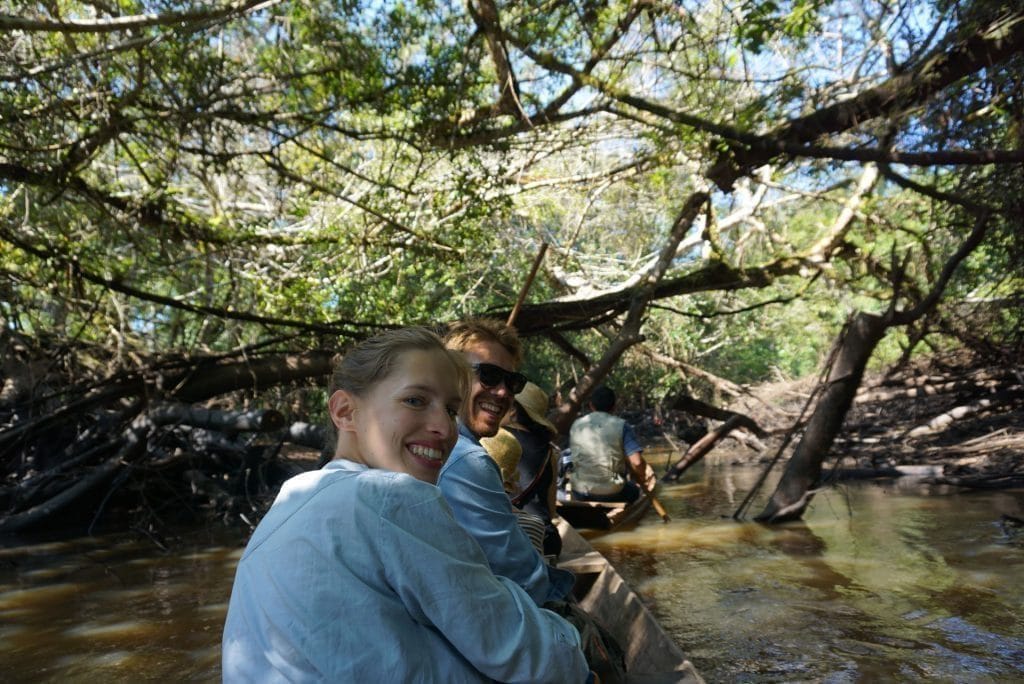
Private Conservation Area Milpuj La Heredad, Lola and Perico
We wrote already several times about the energy and passion that Perico and his mother Lola put into their property, just a few minutes from the village of Tingo Nuevo. Tingo Nuevo is the village from where you take the cable car to climb to Kuelap, the “Machu Picchu of the North”.
A private conservation area is private property whose owners voluntarily commit themselves to preserve it, reforest it, do animal census and protect the environment.
At Lola and Perico this includes reforestation with native trees from the region, beehives, an organic vegetable garden, an educational path on which are indicated the names and virtues of plants and trees, but also night cameras to film wonders like the presence of a nocturnal leopard.
At Milpuj you can adopt a tree, Perico will send you your adoption certificate and you will have a stone in your name and news of your “protégé” for 2 years.
Perico currently offers 4 guest rooms with others in preparation, built and equipped with ecological materials. The meals are made with the ingredients of the vegetable garden and the eggs come from the hens of the house.
All of this looks great for a responsible trip ? Well, I can assure you that it is mainly a lot of work and perseverance, anxiety, fundraising and problems with hunter neighbors. Meeting Perico means sharing with a highly passionate person who is convinced of his mission.
More information in our detailed article on Perico and Lola or directly on their Facebook page (with lots of pictures and texts in Spanish).
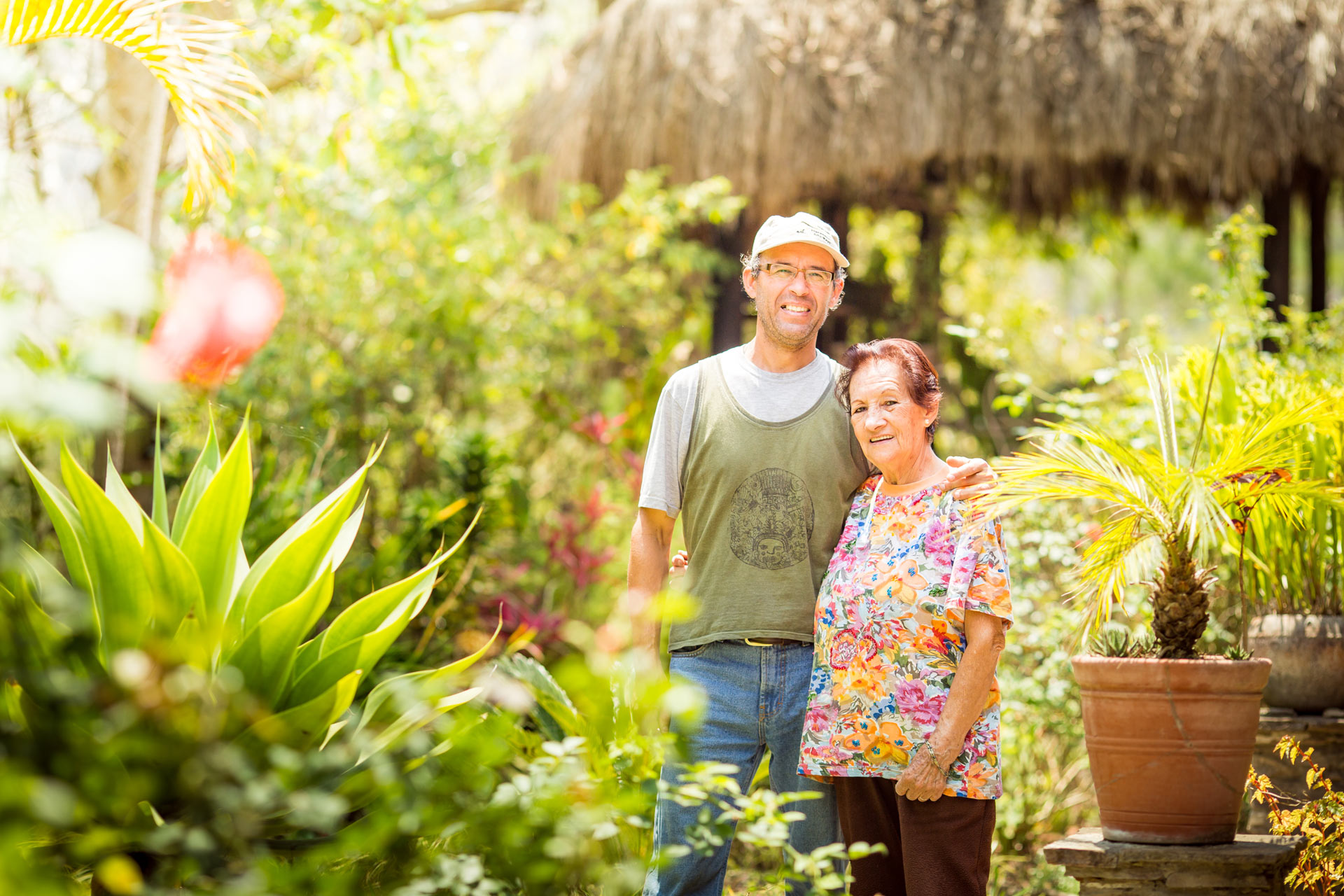
The Chaparri Community Nature Reserve, Chiclayo
Chaparri on the northern coast of Peru, 1 hour 30 minutes from Chiclayo, is in a desert environment. The nature reserve was created by the Santa Catalina community of Chongoyape in 2000 (and is therefore a private conservation area) and now houses a rescue center for spectacled bears, a great diversity of birds, but also a serpentarium, hives and a place to make shamanism.
The reserve is a role model for community tourism in Peru, but nevertheless it gets regularly attacked by fires from locals hostile to the conservation area.
In the organization of the community, there are the people directly involved in the tourist operation as guides, at the reception, taking care of animals. And there are the others that continue their traditional tasks. Tourism income is then invested in the village school or health resort and benefits all residents.
You can also stay overnight at the reserve. This is a very popular option with birdwatchers, because Chaparri is “host” for more than 200 different species of birds!
More information about a responsible trip in the Chaparri reserve on their page in English.
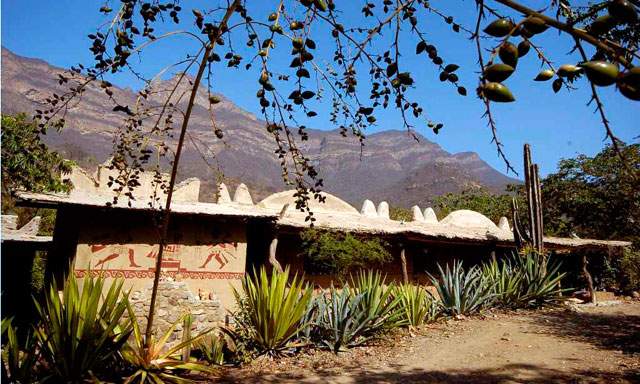
Ecotourism with Sr. Heriberto and his family, Chazuta
This is a private initiative, not a conservation area. The property Rio Bosque Magico is located 1 hour 30 minutes from the town of Tarapoto in the village of Chazuta, on the banks of the Huallaga River.
For over 15 years, Heriberto and Maria Elena, his wife, together with their children, have been implementing organic farming in cocoa and medicinal plants.Only that in Peru, 15 years ago, nobody talked of agritourism or organic farming! The couple was treated as lunatics, but they persevered in their idea. Compost, plant nursery – they steadily advanced by themselves. Maria Elena started turning cocoa into chocolate, a product they sell in Tarapoto.
Today the family has made a name for itself, the surrounding farmers have realized the negative effects of chemical fertilizers that have impoverished their land and have cost them dearly (to the point of having to go into debt to be able to buy them and then be obliged to sell their crops in order to repay). Students from the University of Tarapoto come to see Heribertos Farm as well as international travelers interested in organic agriculture.
You can stay overnight at Heribertos place, either at his home, in small cabins with shower (cold) and toilets shared with the family, or very soon in the cabins that he is building directly in the Rio Bosque Magico. Elena cooks very well and you can also learn about the local ingredients of the Selva, including plantains.
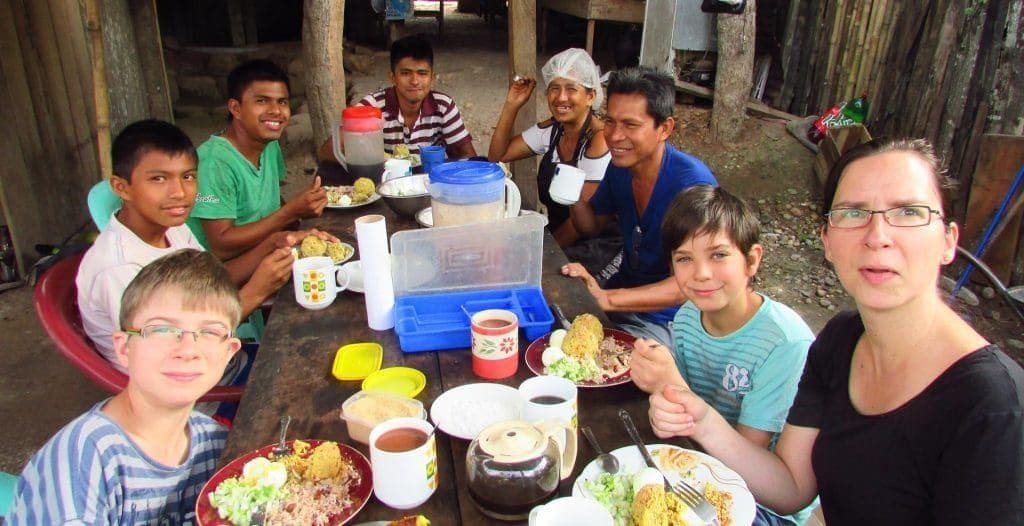
Rural tourism in the community of Cuispes
The community of Cuispes is an hour and 15 minutes away from the town of Chachapoyas and receives more and more advertising for its Canyoning activity, which was launched in collaboration with the Spaniard Juan Luis Molins. Your can now find movies from BBC UK or the Peruvian television about Cuispes !
Thus, it is super important for the community to organize themselves to welcome visitors not just for the canyoning adventure or visit the Yumbilla waterfall (one of the highest in the world), but also to stay there a little longer.
The local tourism association manages the entrance to the park to hike to Yumbilla. The community members clean the path ways from fallen branches or trees, secure them by bringing in stones or building bridges, and take care of trash that careless visitors throw on the ground. In turns they take care of the reception and serve as local guide for visitors.
Since last year we work with the members of the association to propose homestays (rooms in the local family homes) and traditional activities that they can propose to visitors so that they might stay several nights. Discovering coffee fields and the coffee production, making traditional bread or seeing Wilder’s hives – all these activities prepared by the villagers make you participate in their everyday life and (at the same time) give them an additional income.
More information in our detailed article on the activities to do in Cuispes.
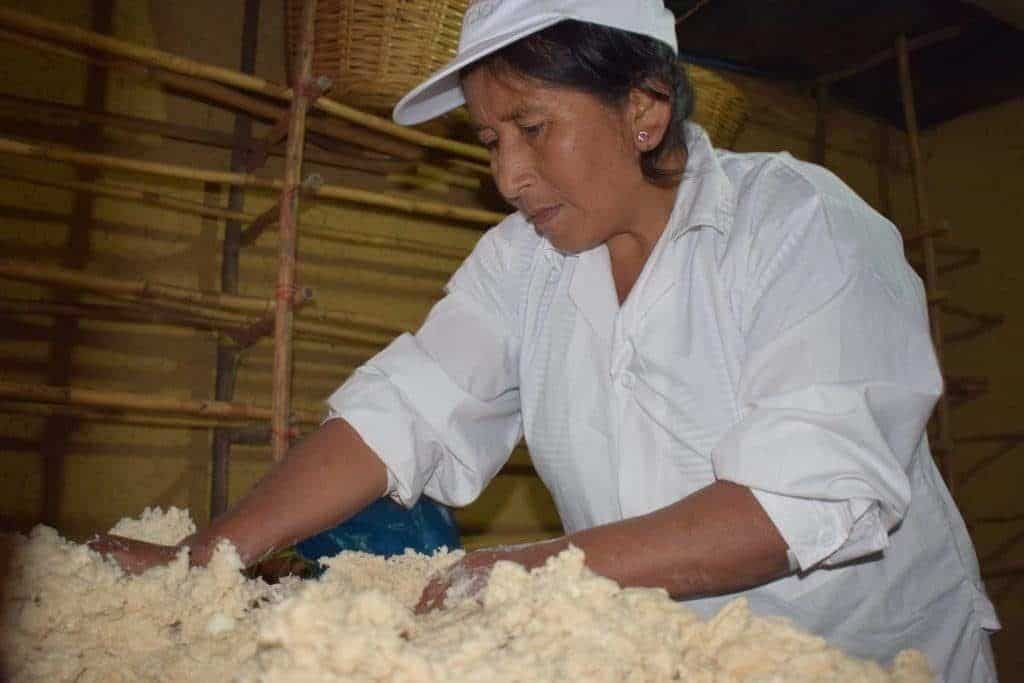
Responsible trip with traditional activities in Leymebamba
You may have heard of the Museum of Leymebamba, the place where more than 200 mummies are preserved, among others those that were brought from the Laguna de los Condores archaeological site, 40 km away from Leymebamba.
But the village does not only have a museum! Leymebamba is the starting point for spectacular hikes in the surroundings, on foot or on horseback. Léa, our trainee in Tourism and Development spent several weeks to train the villagers to welcome customers and to structure traditional activities such as weaving or cheese production!
The goal is always to ensure that the traveler discovers the region not only by its archaeological sights, but especially by an enriching exchange with the local population.
More information in our detailed article on activities to do in Leymebamba.
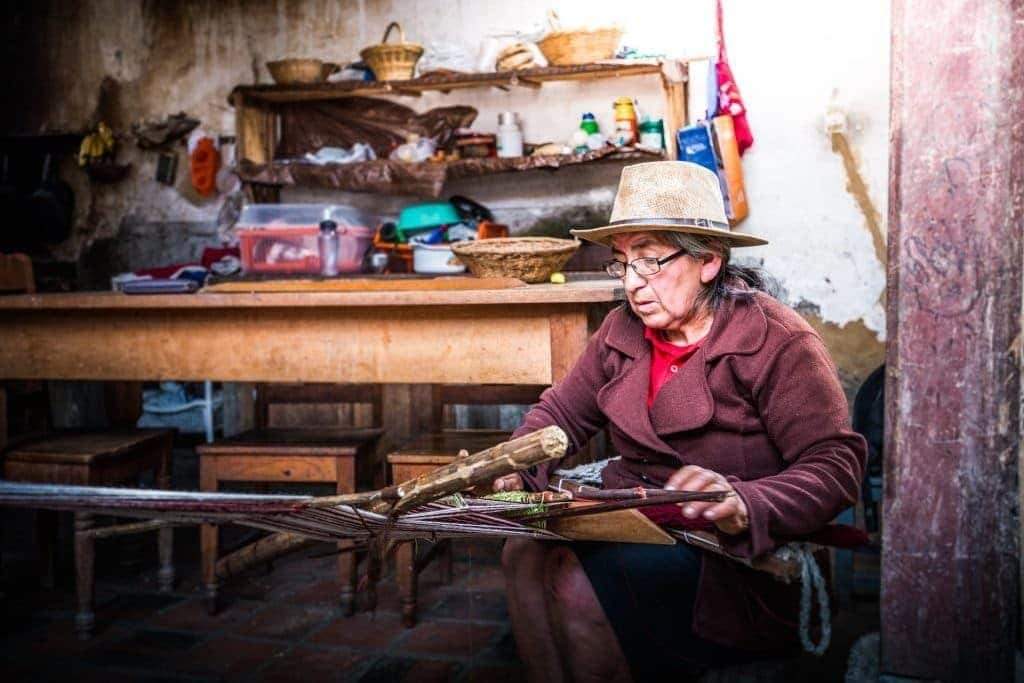
Stay in a community in Iquitos
You have always dreamt of discovering the Peruvian Amazon, but from the inside, not in a lodge where your excursions are organized in groups? Choose a community stay for your responsible trip, where you will live in rustic wooden cabins (with mosquito net).
Go fishing, take a night walk in the jungle, learn the virtues of medicinal plants, glide over the water of rivers to see birds or pink dolphins – the activities are many and varied and absolutely adapted to your desires.
For several days you follow your host, you eat typical cuisine based on plantains and fishes, you play volleyball with the youth of the village and you watch the local women performing their traditional crafts.
For several days you follow your host, you eat typical dishes made from plantains and fishes, you play volleyball with the youth of the village and you watch women doing traditional crafts.
A homestay is a unique experience for you (it takes several hours to reach the community) and a good income supplement for your host family.
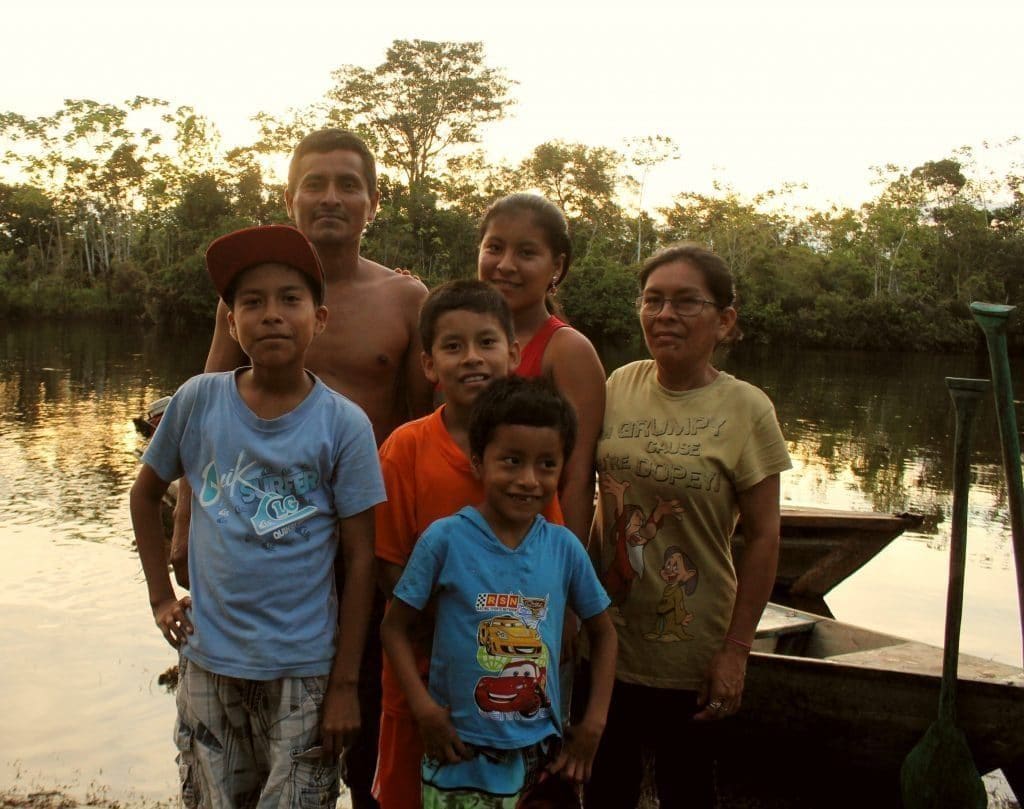
For more information on official responsible tourism definitions and what they mean for us, we have written a very complete article here.


